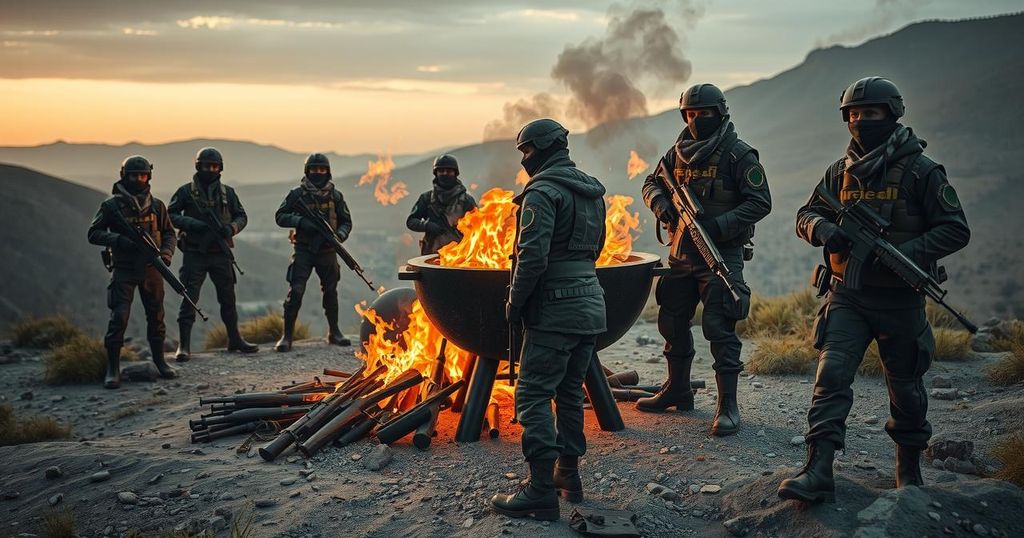Turkey’s Efforts to Resolve 40-Year Kurdish Conflict

- Thirty Kurdish fighters ceremonially burned their weapons in Iraq, signaling a new initiative.
- Abdullah Ocalan, the PKK leader, called for disarmament in a recent message to his fighters.
- Devlet Bahceli’s surprising remarks might reshape Turkish-Kurdish relations moving forward.
Understanding the PKK and Its Historical Context
Turkey’s 40-year conflict with the Kurdish militant group, the PKK, took a notable turn recently in a potently symbolic ceremony held in northern Iraq. On Friday, 30 Kurdish fighters, prominently featuring both men and women, publicly burned their weapons. This act marked the first concrete step in a bold new initiative aimed at putting an end to one of the Middle East’s longest insurgencies. This move comes after Abdullah Ocalan, the imprisoned leader of the PKK, urged his followers to disarm and dissolve the group, demonstrating an evolving stance towards peace.
Recent Developments and Political Motivations
Established in 1978 by Abdullah Ocalan, the Kurdistan Workers’ Party, commonly referred to as the PKK, has waged an armed struggle against the Turkish state since 1984. Originally, the group aimed to create an independent Kurdish state, but over the years, its objectives shifted towards advocating for greater Kurdish rights and autonomy within Turkey. Tensions along this conflict have escalated into a wider struggle, which killed tens of thousands, prompting significant international concern regarding the PKK, classified as a terrorist organization by Turkey, the U.S., and the EU. Ocalan, currently serving a life sentence, continues to be regarded as an influential figure in Kurdish advocacy, despite his imprisonment.
Challenges and Previous Attempts at Peace
The backdrop to the recent events includes Turkey’s changing political landscape. Devlet Bahceli, a hardline nationalist and close ally of President Erdogan, surprised many by suggesting that Ocalan could potentially be paroled if he renounces violence. This comment indicates a significant pivot from Bahceli’s previous stance against Kurdish rights. A ceasefire announced by the PKK followed Ocalan’s directives and the group has signaled intentions to pursue disarmament responsibly. However, the anticipated concessions for Kurdish groups in return for their compliance remain elusive, leaving many unsure about the long-term impacts.
The latest developments in Turkey’s Kurdish conflict mark a potential turning point towards peace but are rooted in a complex historical and political context. With the PKK’s armed struggle facing growing challenges, Ocalan’s influence remains significant. The evolving political landscape suggests that while hopes for resolution exist, real barriers and uncertainties persist that could complicate these peace efforts further.








